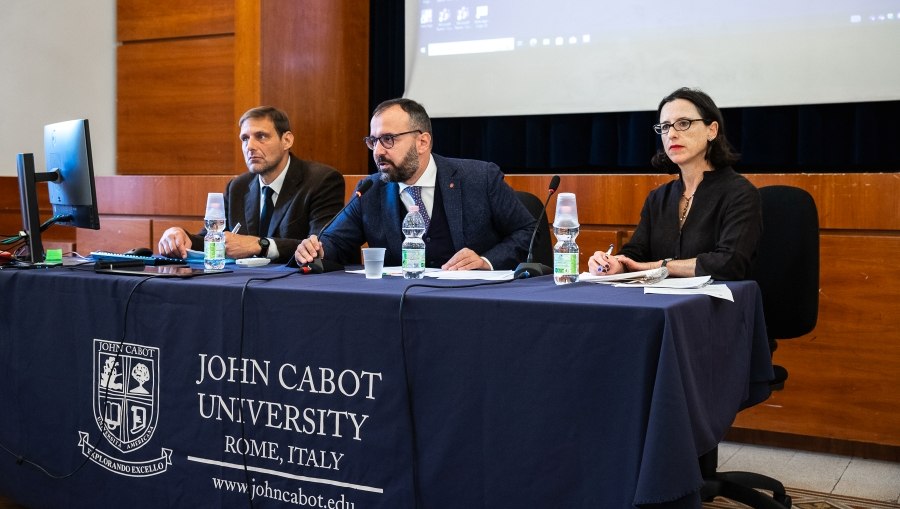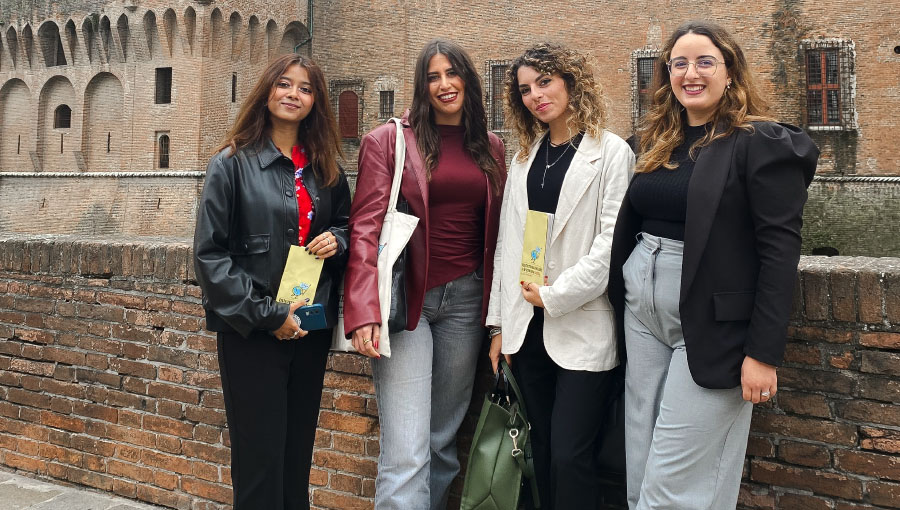The Guarini Institute for Public Affairs Presents: "Fighting Impunity" with Professor Mauro Politi
Professor Mauro Politi drew upon his great experience in the area of international law and international organizations to deliver his lecture at John Cabot University on October 6, 2009 on the rise of international criminal law and the establishment of the International Criminal Court.
Professor Politi began his remarkable career as a Judge in Milan. He then taught international law at the Universities of Urbino and Trento, and later served as a legal adviser to the Permanent Mission of Italy to the United Nations in New York City from 1992 to 2001. During this time, he was a member of the Italian Delegation to the Rome Conference for the establishment of the International Criminal Court. He then served as a judge on the International Criminal Court 2003 to 2009, where he presided over a Pre-trial Chamber. At the expiration of his term, he returned to teach international law at the University of Trento.

Professor Mauro Politi
The program began with an introduction by Frank J. Guarini, the former United States Congressman from New Jersey as well as the head benefactor of the Guarini Institute. Congressman Guarini highlighted the Institute’s past accomplishments and its aims of enhancing students’ understandings of complex international issues. By bringing individual speakers and panels to campus, the institute hopes to enable students to discuss these issues, so that they may participate in their peaceful resolution. Congressman Guarini also highlighted the importance of fostering a robust exchange between Italian American perspectives through these lectures and panels.
Following Congressman Guarini’s statements, Professor Pamela Harris of John Cabot University’s faculty spoke about the relationship between U.S. domestic politics and U.S. foreign policy towards international legal institutions. While the U.S. has historically been a leader in the establishment of international criminal tribunals, its hostility to the ICC bears further reflection. She invited the audience to can think about where it would like to see U.S. policy towards the court evolve, focussing specifically on whether U.S. fears of the Court were reasonable or exaggerated; whether U.S. ratification of the ICC statute was worth the political capital that it would surely cost; and whether there were other ways that the U.S. might support the very important work of fighting impunity.
Professor Politi began his lecture by elaborating on the history which Professor Harris had provided earlier. He emphasized the determination with which the Italian and other governments pursued the creation of an international court. He explained that after World War II many nations wanted to punish those leaders who had committed crimes against humanity, which led to the Nuremburg Trials. After the Rwandan Genocide and the tragedy within the former Yugoslavia, it became apparent that some type of body to implement international law was needed. Thus, through much debate at the Rome Conference in 1998, the International Criminal Court was born.
In the second portion of his lecture, Professor Politi outlined the basic procedures of the court. He explained how the lead prosecutor may begin an investigation and how member countries may petition the court for prosecution of specific individuals. He also explained the important relationship between the International Criminal Court and other major international organizations such as the United Nations Security Council. Additionally, Professor Politi highlighted the tension between the International Criminal Court and the United States, concerned about protecting its soldiers’ immunity from international jurisdiction. He explained the awkward position of the American delegation to the Rome Conference: it wanted to support international justice in general, but did not want to risk having its own citizens tried in particular.
Professor Politi also discussed the situations currently before the Court. He concluded by affirming the importance of the fight against impunity in creating a more harmonious international system. He left us with the hope that international law might become a more permanent feature of international relations. Professor Politi then entertained a number of questions from the audience which encompassed a myriad of topics including the paradoxical commitments of some members of the court and the sovereignty of the States Parties of the court.





